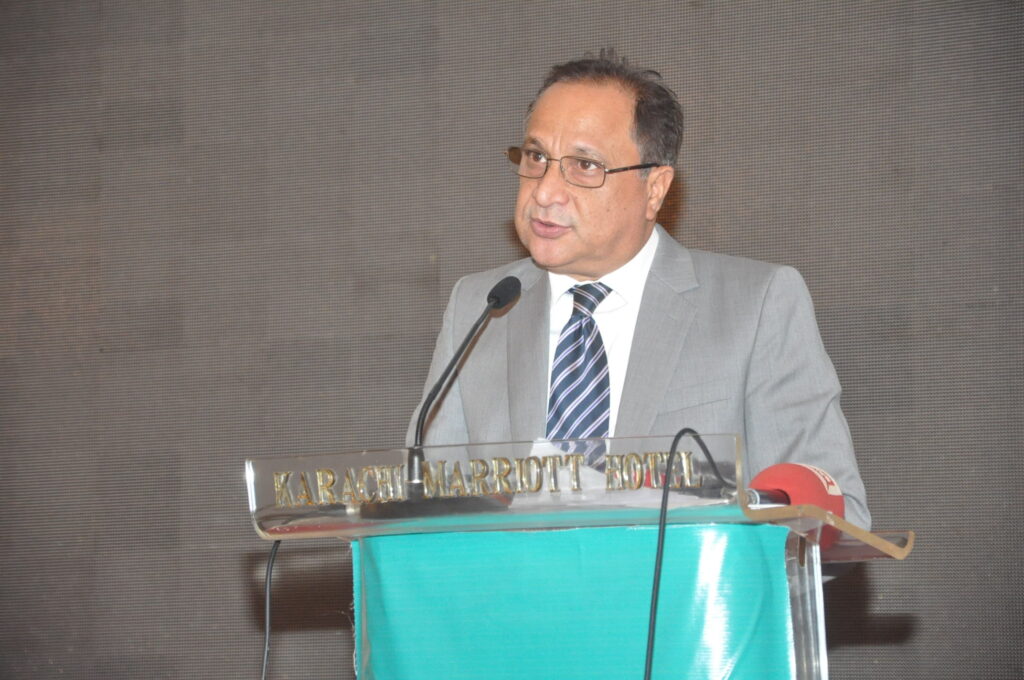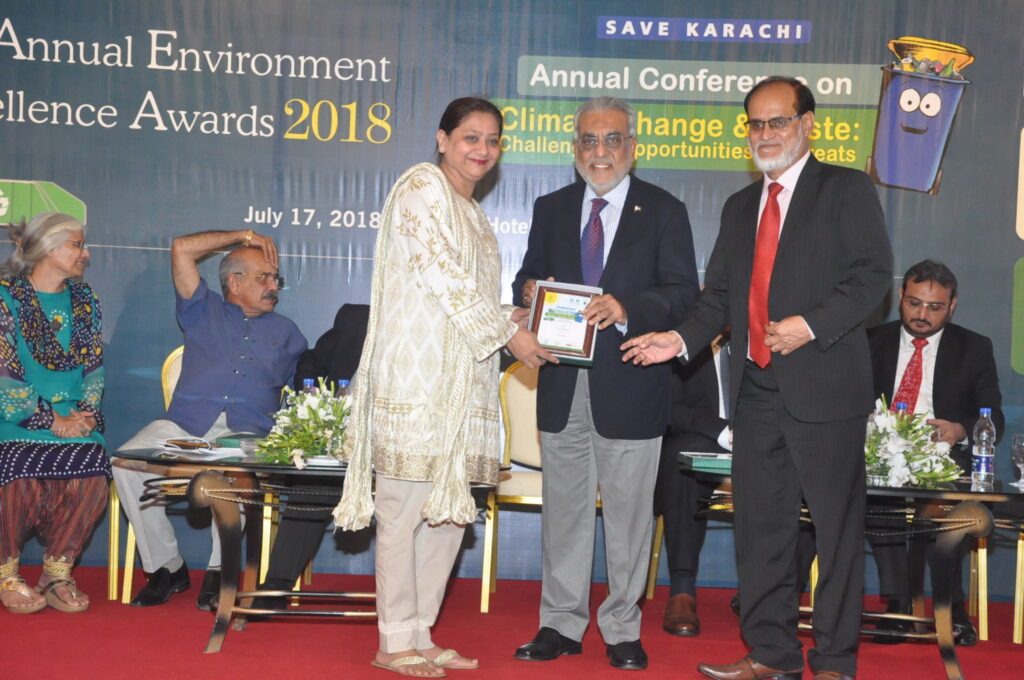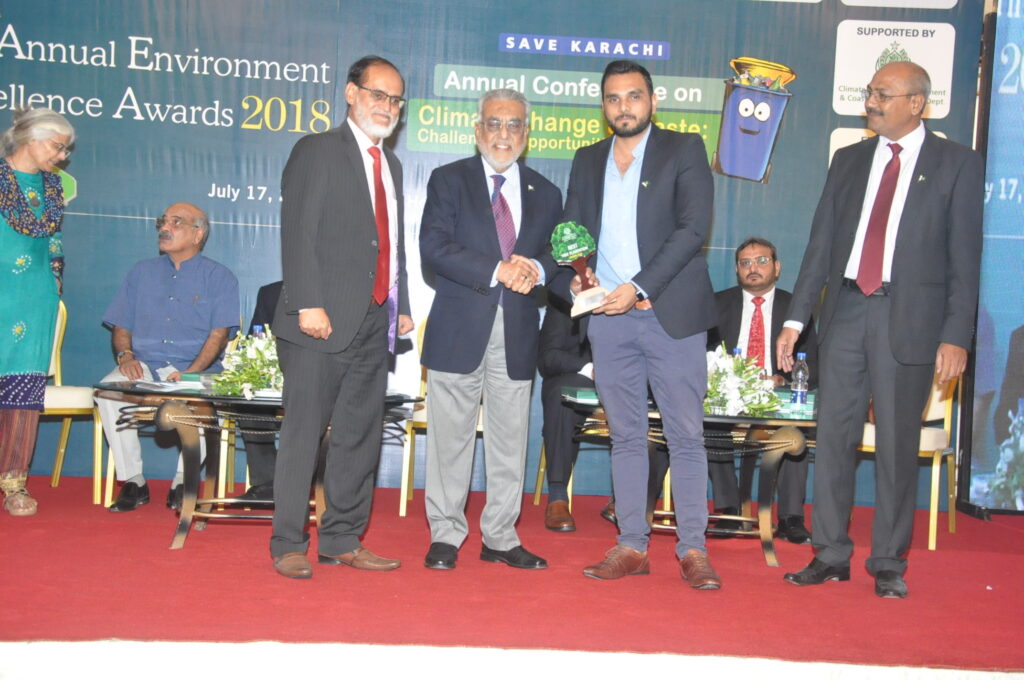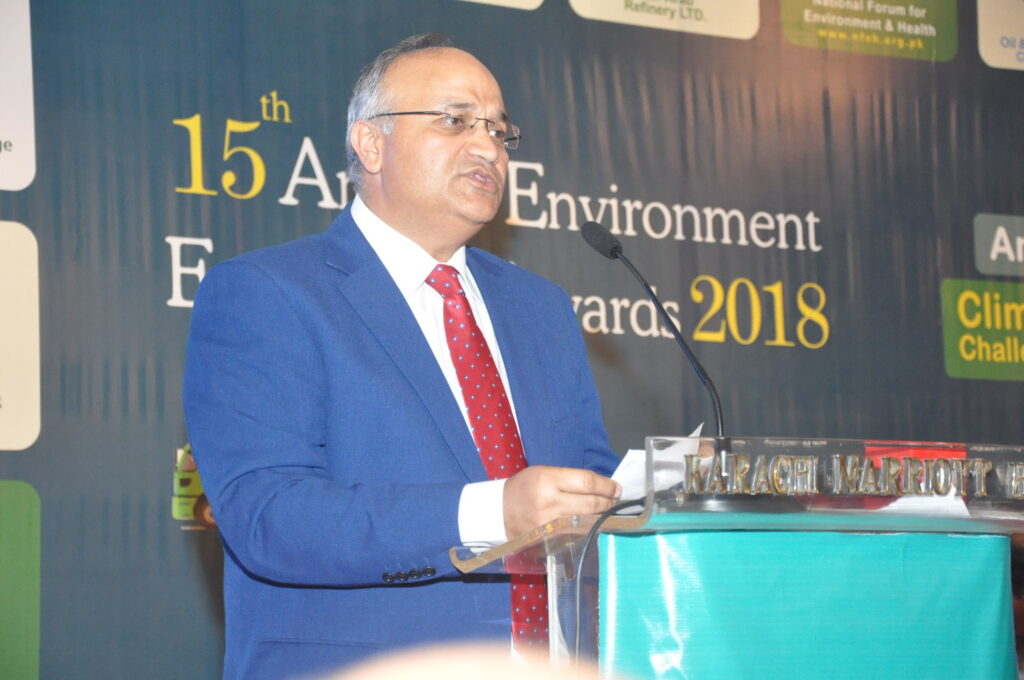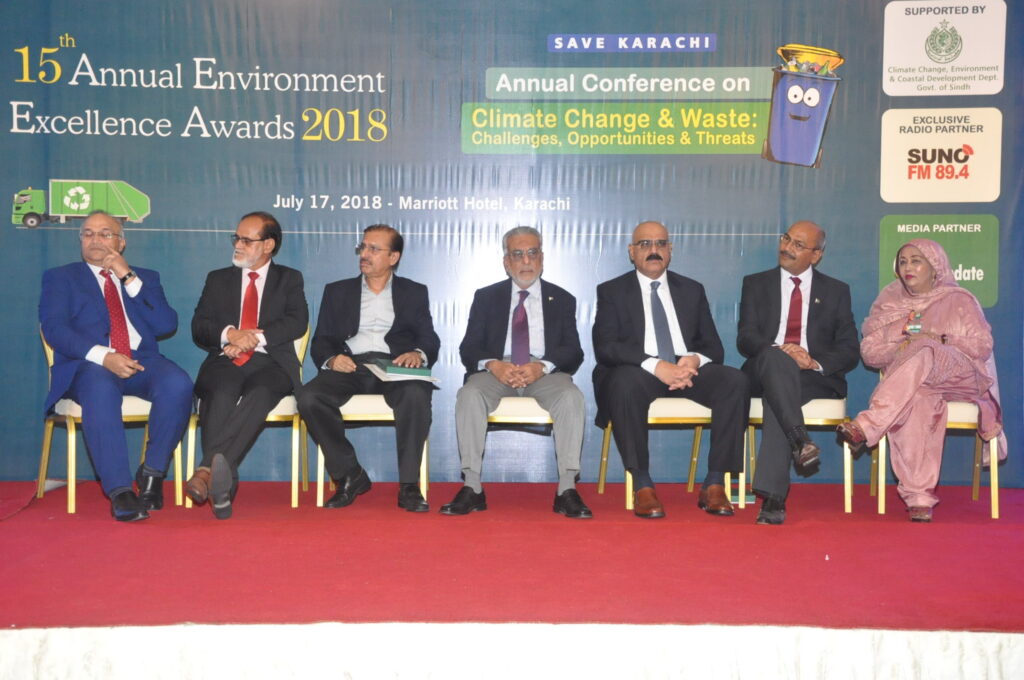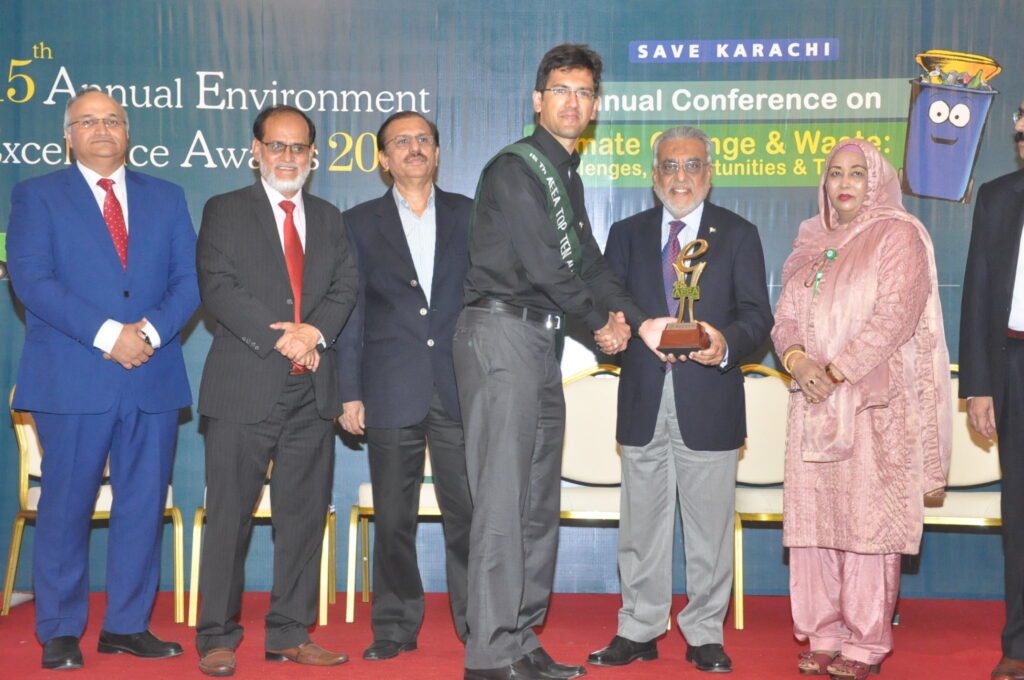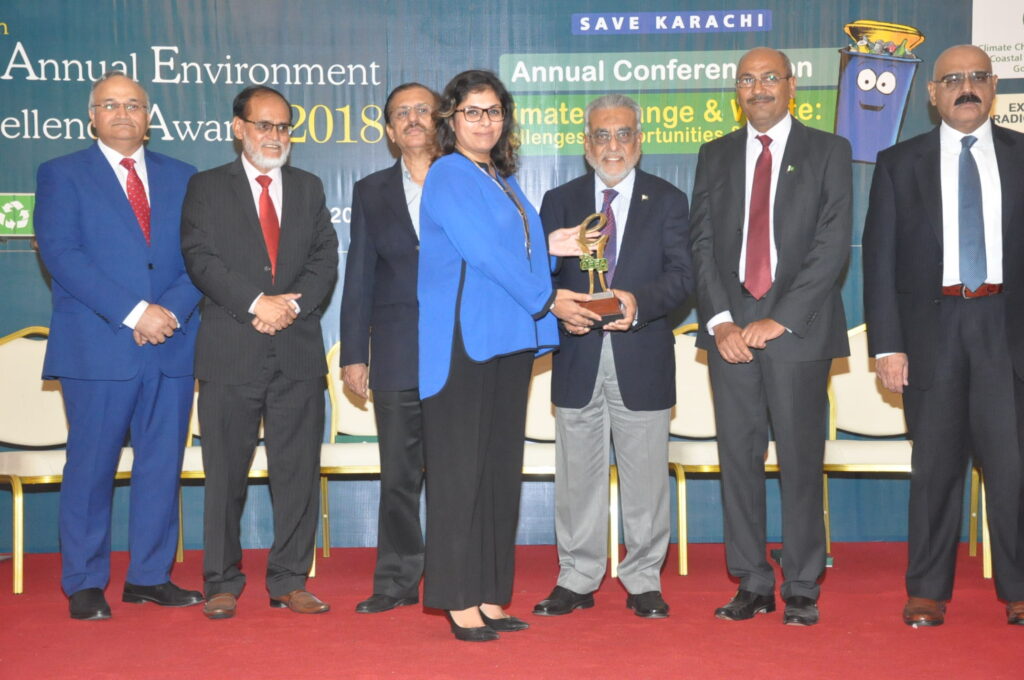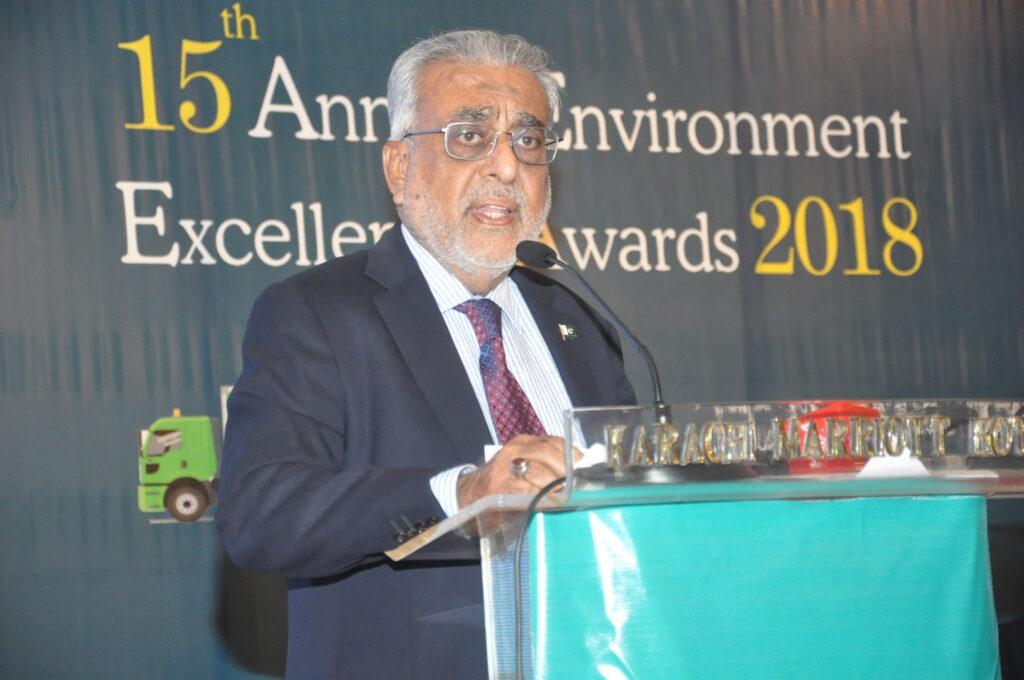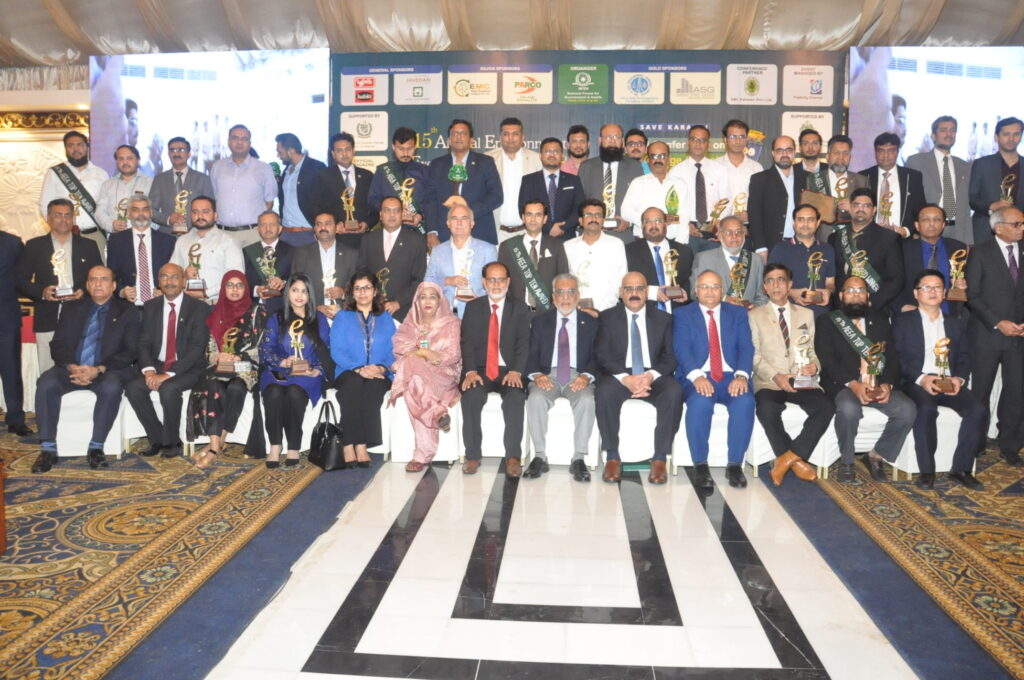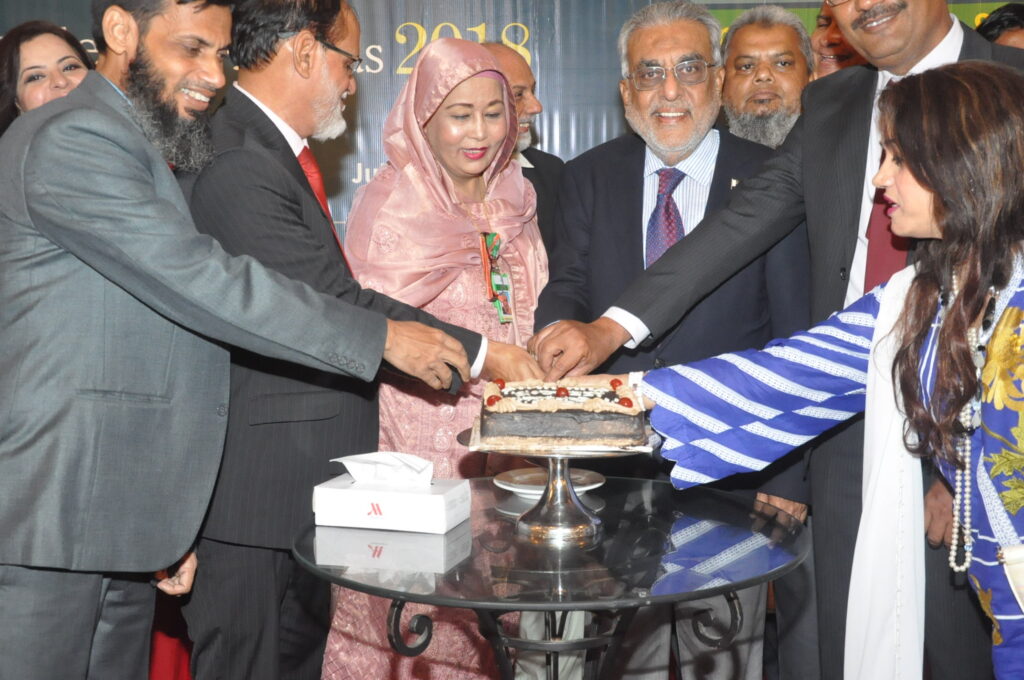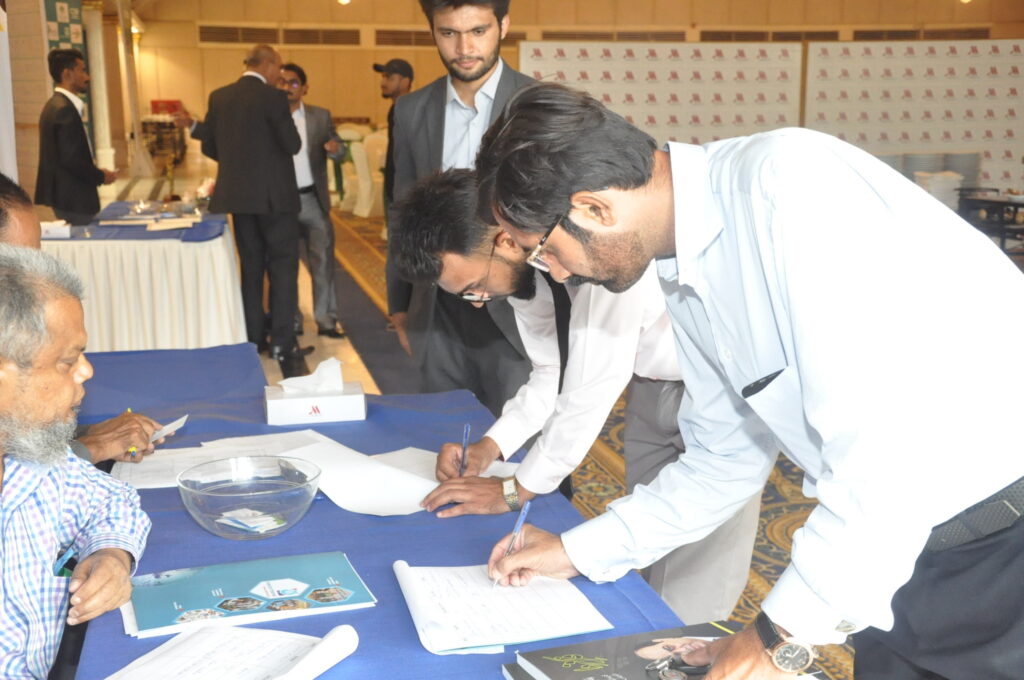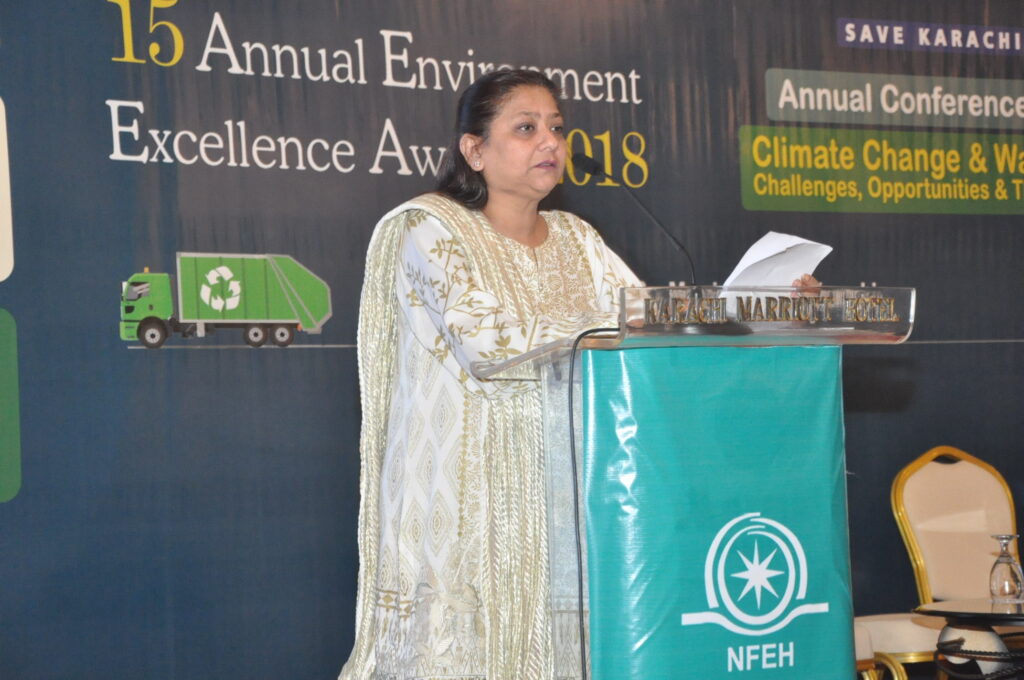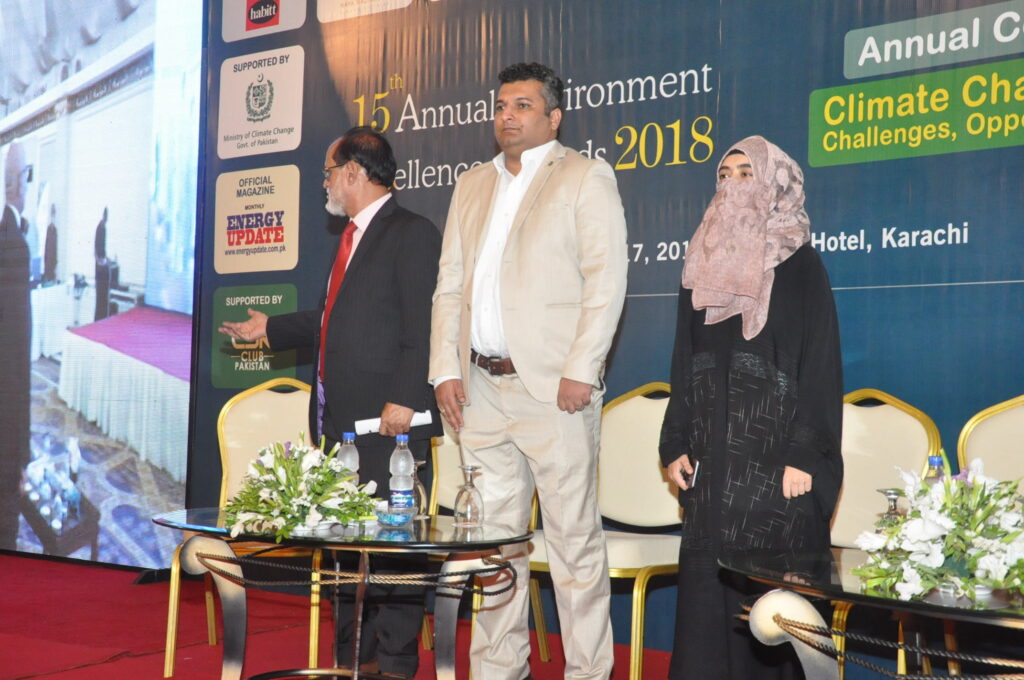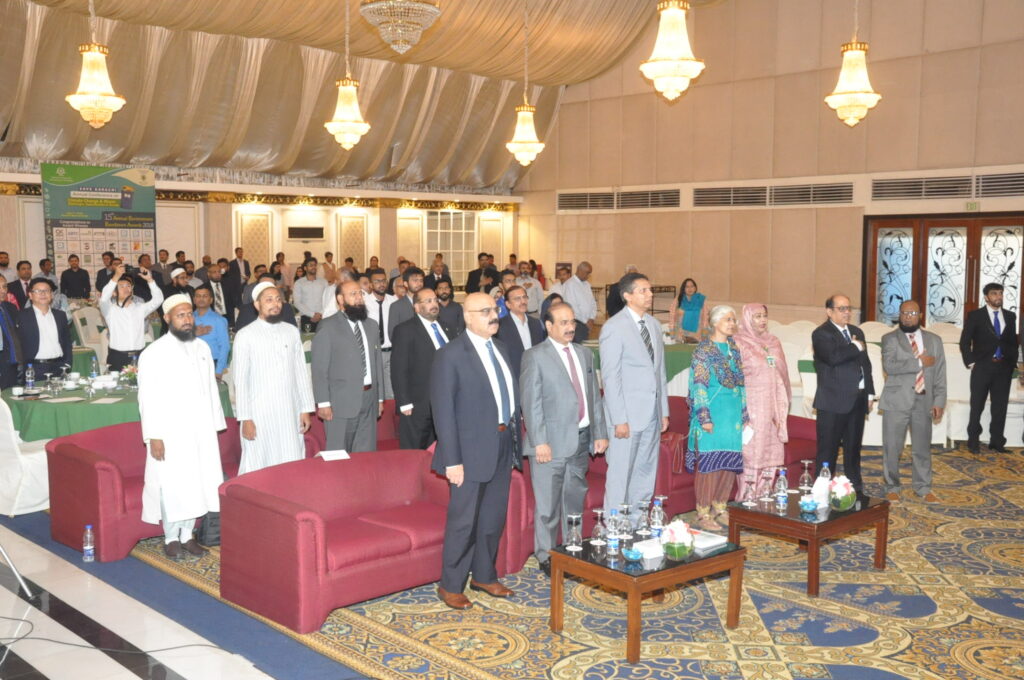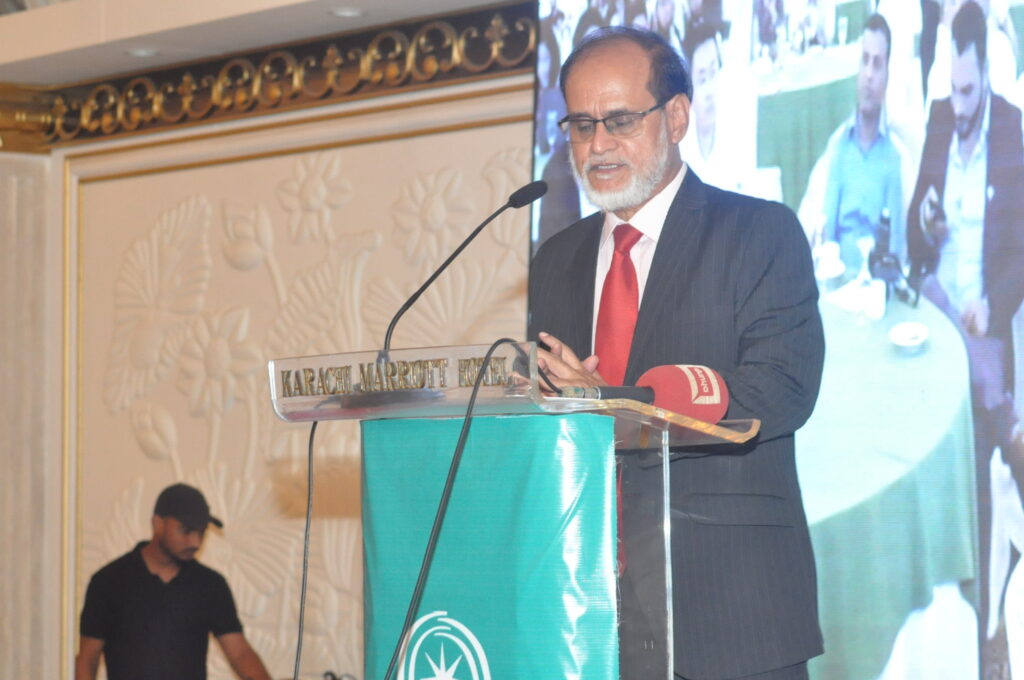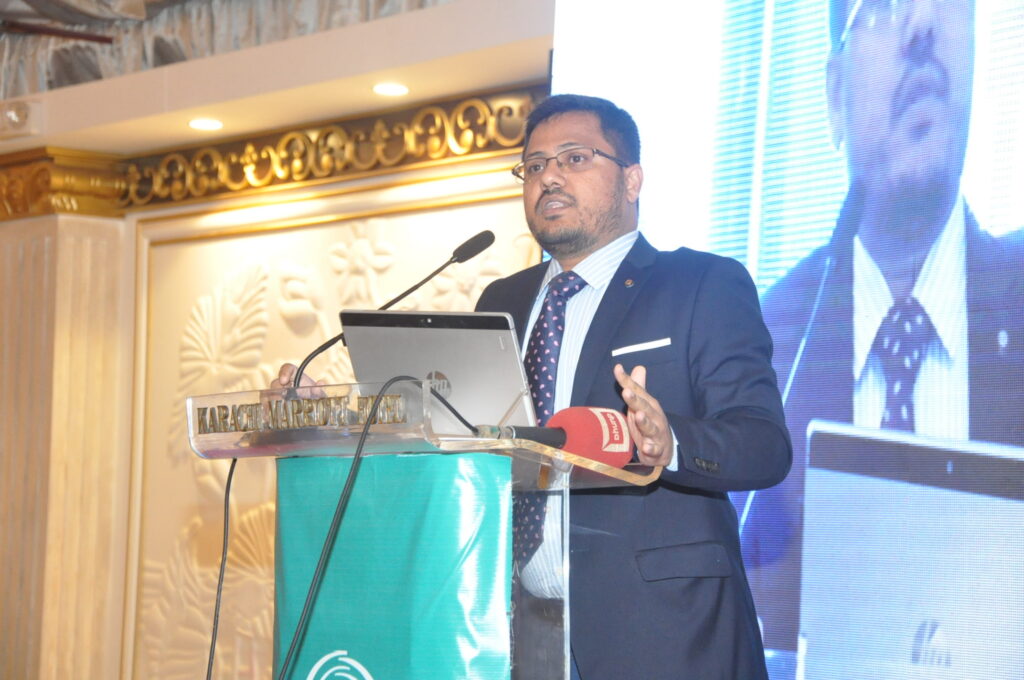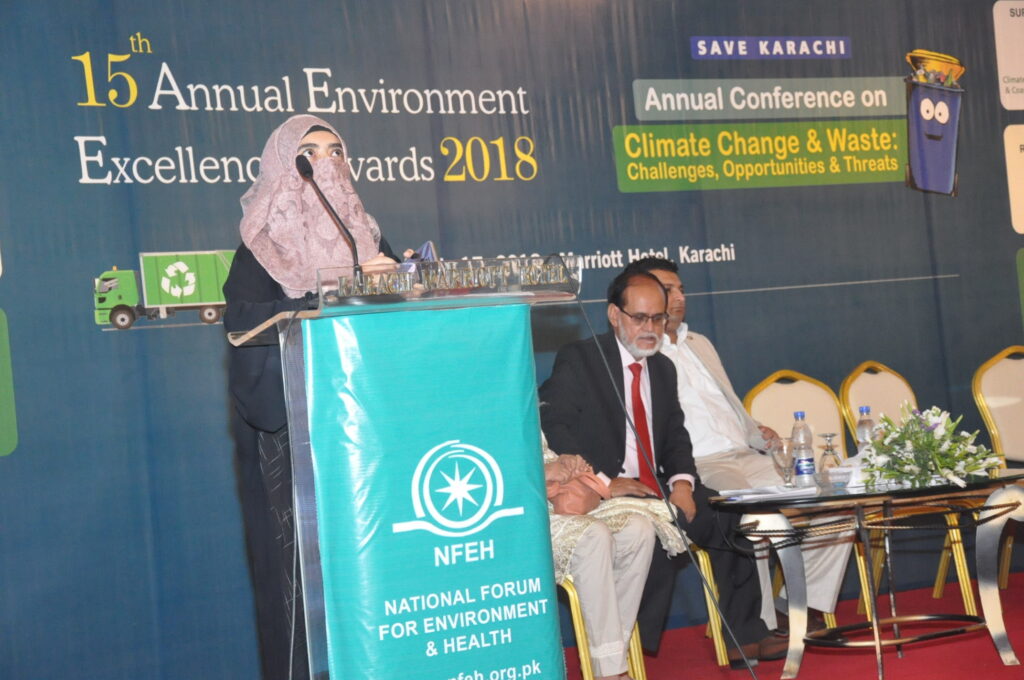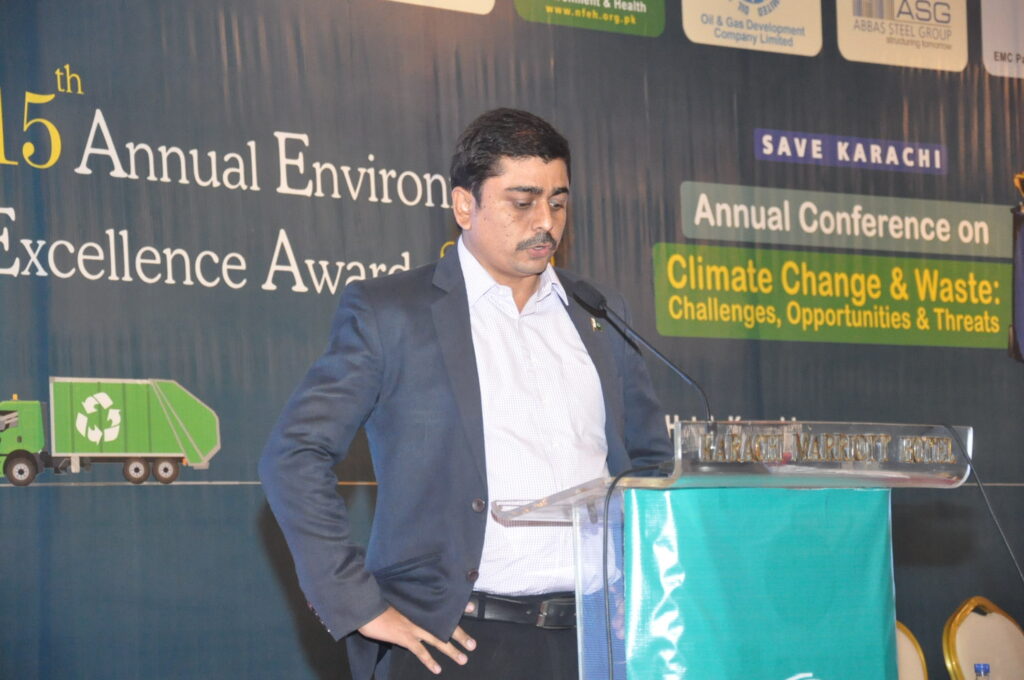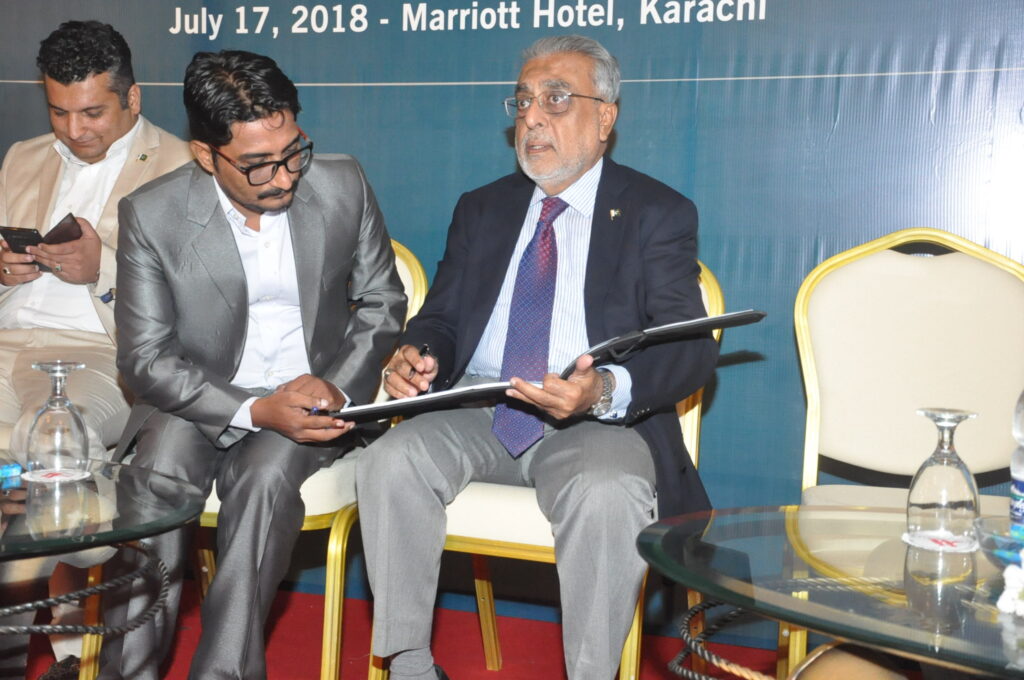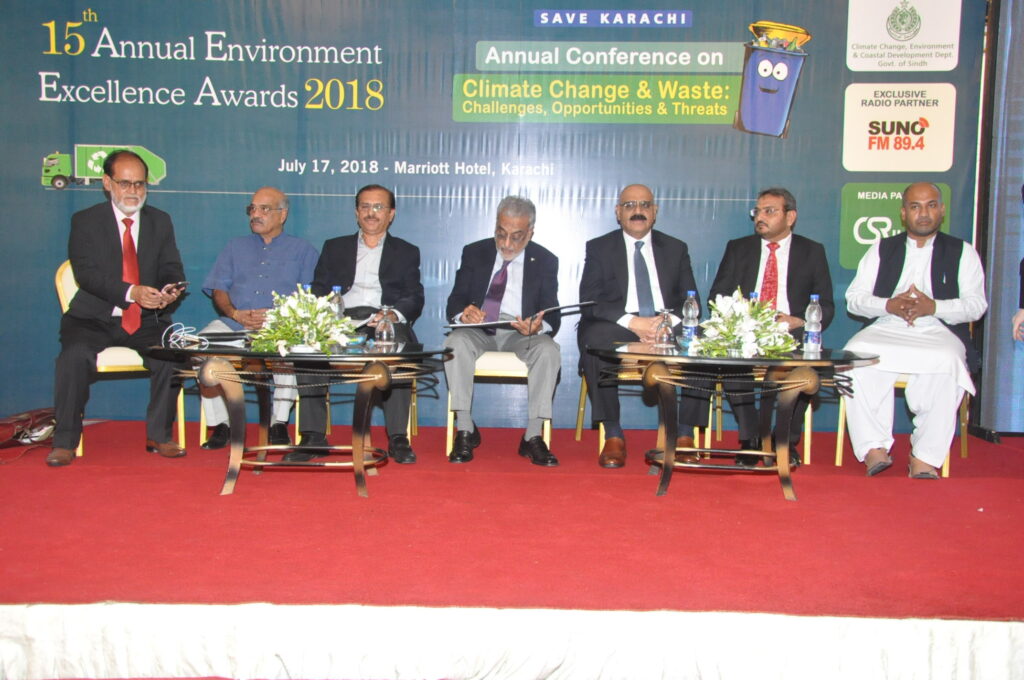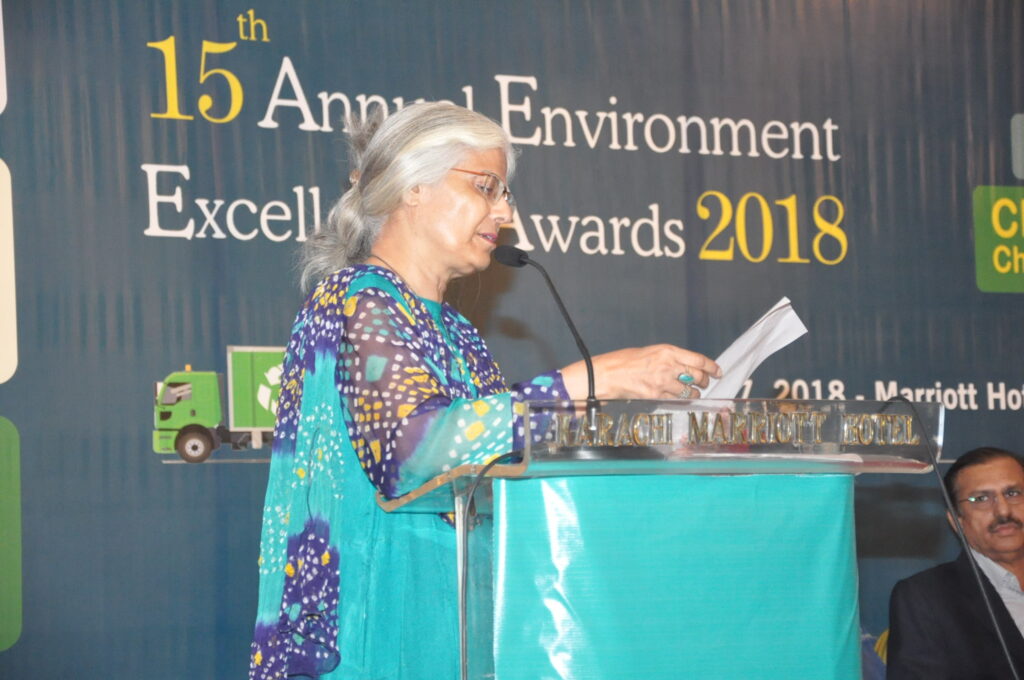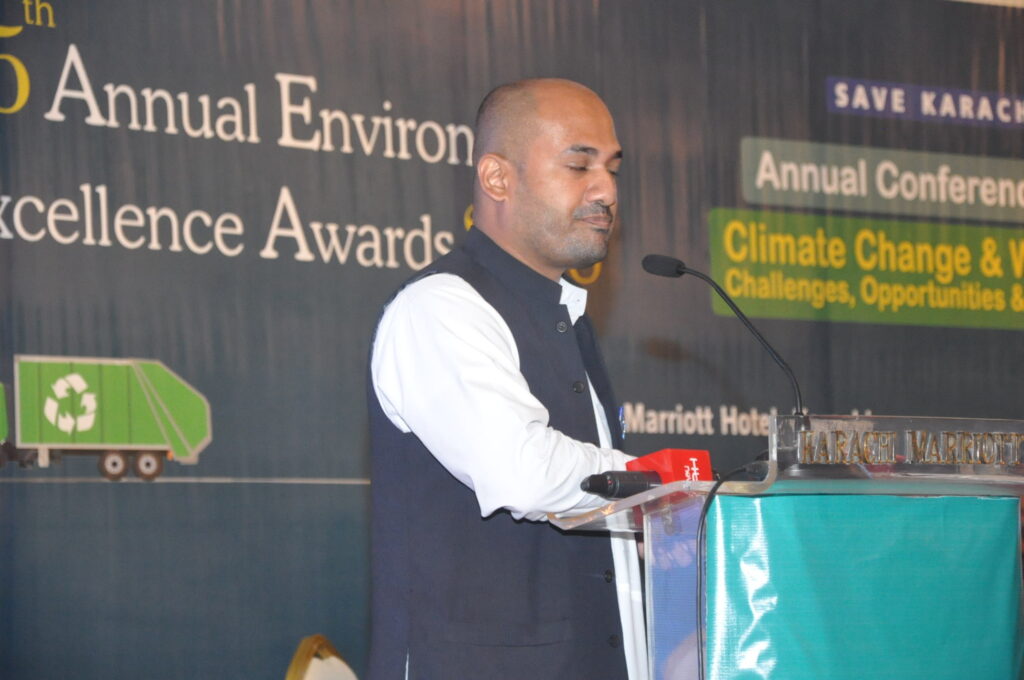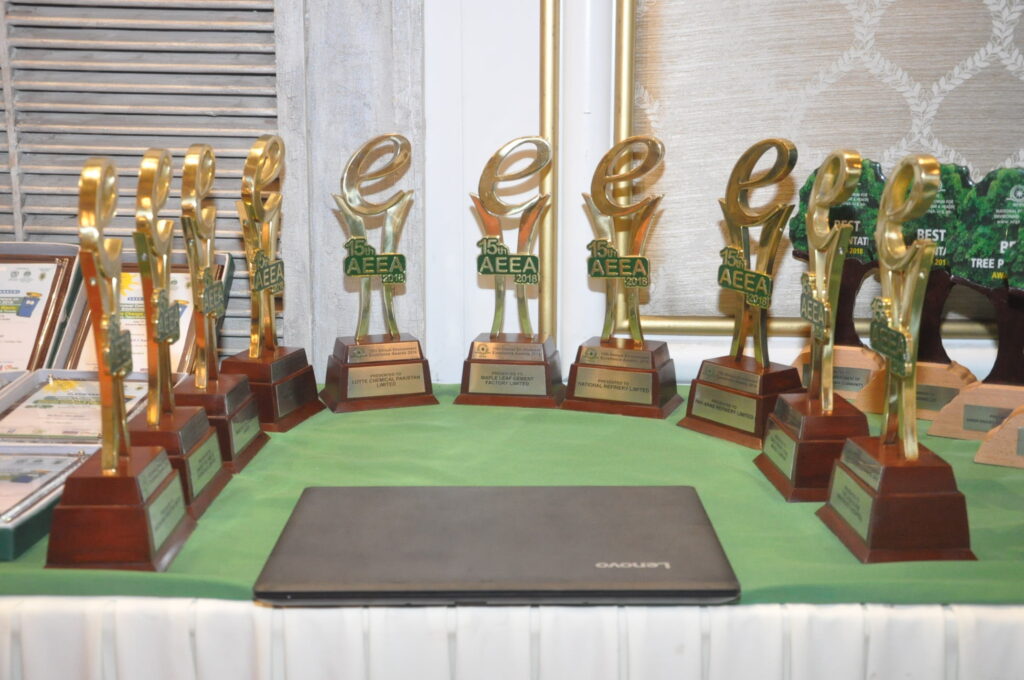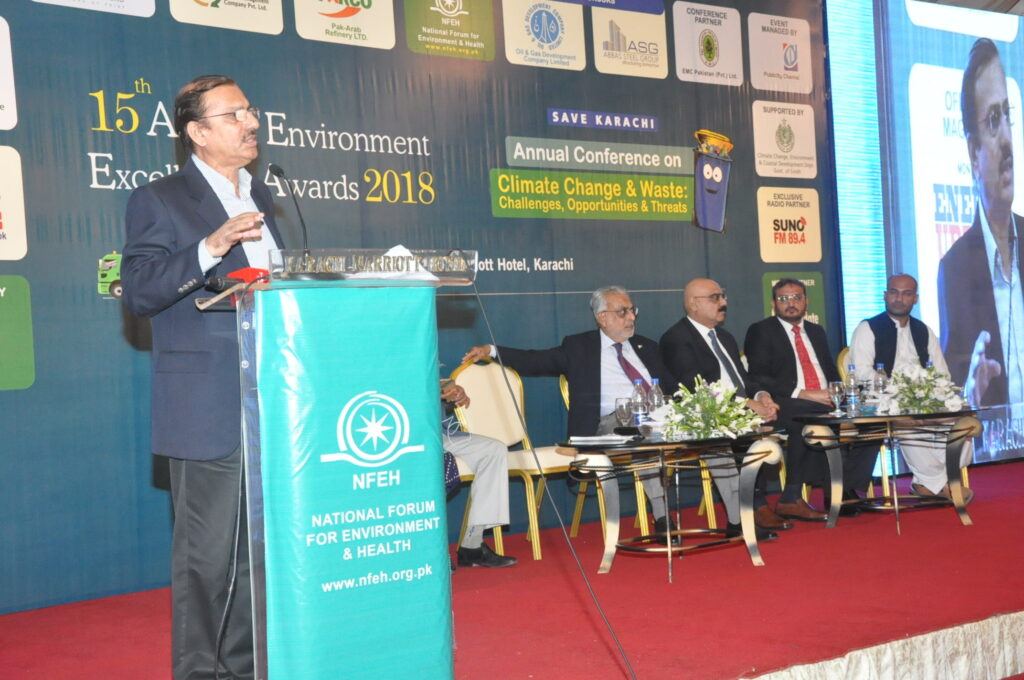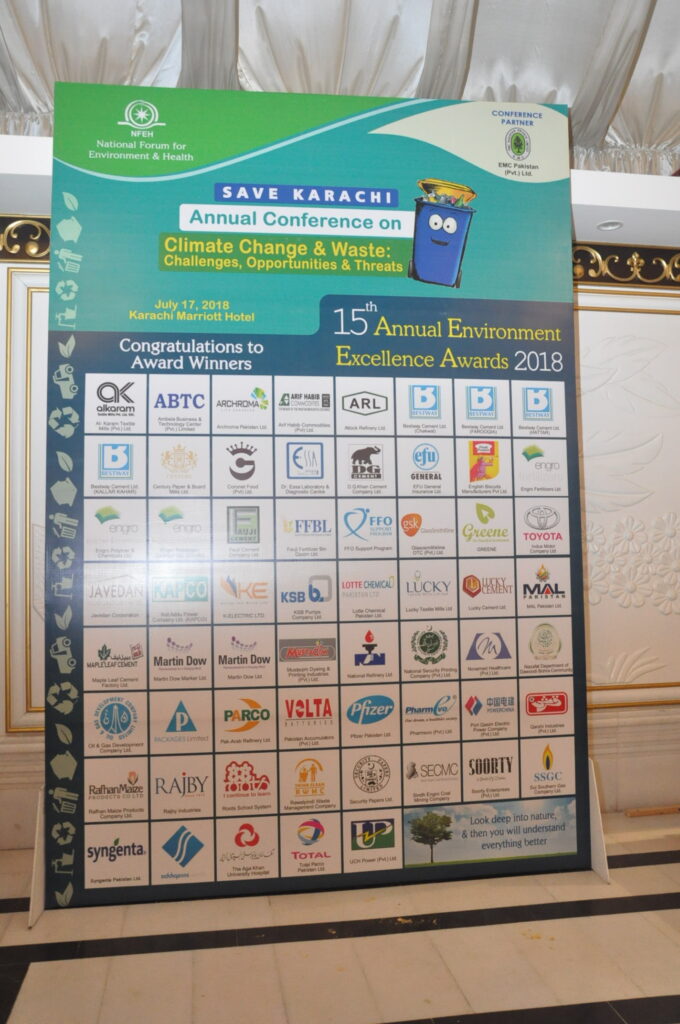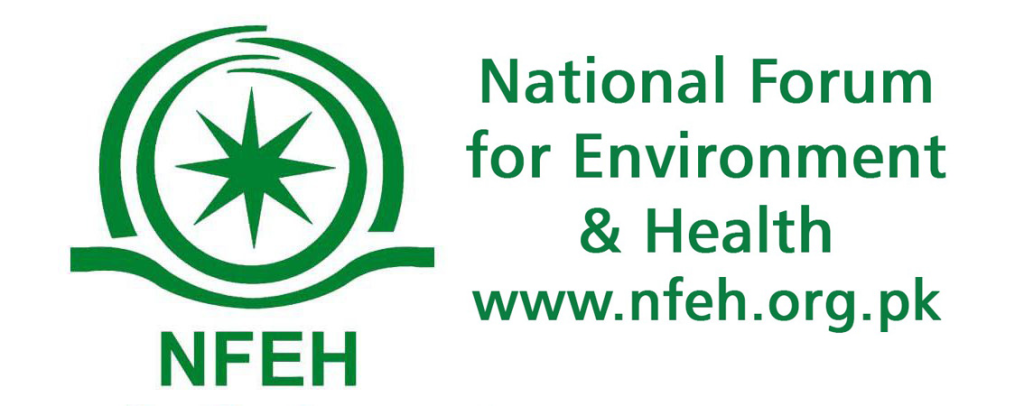Annual Environment Conference ‘Karachi should build two waste-to-energy plants as easy solution to consume 2,000 tons waste’
Karachi, July 18: Karachi has the potential to easily build two waste-to-energy plants at its landfill sites in Jam Chakro and Gond Pass as these plants will safely consume 2,000 tons waste out of total 12,000 tons garbage the city generates daily.
Audience of the 15th Annual Environment Conference-2018 was informed that Karachi lacked the basic infrastructure and resources to dispose of 12,000 tons municipal waste it generates on a daily basis.
The National Forum for Environment and Health (NFEH) organized the conference on the theme of “Climate Change and Waste: Challenges, opportunities, & Threats”.
Speakers of the conference said that waste collection and disposal system was nowhere seen in Karachi as municipal governance of the city was heading towards a virtual breakdown owing to sheer neglect by the successive governments.
One of the panellists of the conference, Engineer Muhammad Khalid shared with the audience findings of his study on waste-to-energy option for Karachi saying that owing to lack of infrastructure only up to 60 to 70 percent waste generated in the city was lifted for proper disposal.
He said that per person daily waste generation in Karachi ranged between 0.37 kg to 0.95 kg, which was quite manageable given the international standards of waste management system.
He said the survey conducted by him found that only temporary garbage transfer stations did exist in the jurisdictions of district municipal corporations East, South, Central in Karachi and that too had been established without conducting any environmental and social impact assessment studies to ascertain negative effects of these waste disposal facilities.
He said that waste-to-energy projects could easily be installed both at Jam Chakro and Gond Pass landfill sites of the city where at each one of the sites 1,000 tons of useful waste could easily be separated from rest of the garbage to consume it for the project.
Mehfooz Qazi, director Alternative Energy at Sindh Energy Department, said that Sindh government in the coming year would launch solar energy project as already the province was contributing well in alternative energy sector through wind power plants.
He said that NEPRA had already issued upfront tariff to every province for up to 50 Megawatts waste-to-energy plant as this incentive would serve well to attract private sector to invest in waste management system of Karachi.
He said that waste-to-energy project would hopefully be built in Karachi in one year’s time as after Sindh Solid Waste Management Board getting functional, a lot of hurdles towards this cause had been removed.
Managing Director of Rawalpindi Waste Management Company (RWMC) Dr Rizwan Ali Sherdil said that his company had been established in 2014 and so far it had achieved its basic task to do 100 percent collection of waste generated in Rawalpindi as for the purpose the city had been divided into 10 zones.
He said the RWMC within one year would install projects to generate electricity and compost on basis of waste it collected in the city as for the purpose landfill site for Rawalpindi was already functional.
Ahmad Shabbar, running a non-governmental initiative “GarbageCan” doing its waste disposal work in Karachi, said that waste management operation in a city like Karachi could easily be made a viable business proposition for every stakeholder through adoption of modern recycling techniques.
He said that public-private partnership was the most viable option to do waste management work in Karachi.
Shah Jahan Mirza, MD of Private Power & Infrastructure Board (PPIB), said that with new power plants established at Port Qasim in Karachi and in Sahiwal, coal-based power generation still stood at eight percent of all the electricity generated in the country.
He said that this percentage was way much less than the international criteria as in the USA 40 percent electricity was generated through coal-based power plants while this ratio stood at 45 percent the world over.
He said the PPIB had always done its best that all coal-based power plants being established in Pakistan should comply with provincial, national, and international environmental standards. And for this very reason, the emissions’ level from these two new power plants at Port Qasim and Sahiwal had been less than the environmental standards of the USA and the European Union.
He said that PPIB had been facilitating private sector to establish power plants in the country of cumulative capacity of 14,000 MWs as out of it, 6,000 MWs would be generated through hydro-based plants with its aim to promote clean electricity production in the country. For the first time private sector was setting up large hydro-based power plants, which would generate several hundred megawatts of clean electricity.
Additional Chief Secretary Sindh Environment and Climate Change Department Mukhtar Hussain Soomro said that Sindh government had been doing its best to implement the provincial environmental protection act as for the purpose it had started its campaign to do crackdown against manufacturers, wholesalers, and retailors related to the business of substandard polythene bags.
He said that owing to efforts of the Sindh government, large shopping and retail centres in Karachi had done away with the use of polythene bags as instead they had been promoting especially manufactured fabric shopping bags among their customers.
Dr Kaiser Waheed, president of SITE Super Highway Association of Industries, said the government in Pakistan like that in India should not allow setting up an industrial area, until and unless all the basic utility and civic services were available there.
In his concluding remarks, Caretaker Sindh Information and Environment Minister Jameel Yusuf said that people in Karachi should not sit back and show no activism in case the state didn’t come to their rescue to provide them basic civic services like sanitation, waste management, working sewerage and drainage systems.
He said that being associated with Citizens Police Liaison Committee (CPLC), he had initiated the CPLC Neighbourhood Care Programme in his residential locality near Hill Park.
He said that for last 23 years, the CPLC Neighbourhood Care Programme had demonstrated very well how the concerned residents of an area could combine their efforts, resources, and show vibrant activism to resolve basic civic and policing problems of their residential locality with support of the relevant government agencies including the police.
The provincial minister said that over the course of last several years, he had been invited by the concerned residents of areas like the DHA, Clifton, and KDA Scheme no. 1 requesting him to replicate the CPLC Neighbourhood Programme in their areas. “But I have always advised them that they have to take the initiative and have to do it on their own as nobody from the outside could ever come to their rescue,” he said.
Mr. Yusuf said that though the present caretaker government set-up had been installed for a very limited time period and with a limited mandate, but even then it had been doing its best to provide all the required assistance to the relevant agencies related to the cause of environmental protection.
NFEH President Naeem Qureshi, Saquib Ejaz Hussain, Afia Salam, and others also spoke on the occasion. Also on the occasion, some 55 companies and organizations were given the 15th Annual Environment Excellence Awards-2018.
